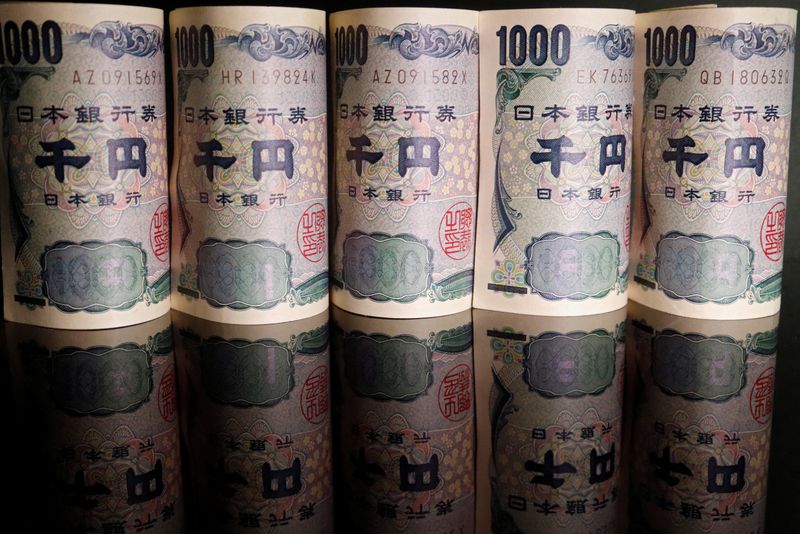Yen sinks to record low vs euro as Japan PM touts slow rate hikes
By Kevin Buckland and Amanda Cooper
TOKYO/LONDON (Reuters) -The dollar eased on Thursday after U.S. President Donald Trump signed a deal to end the government shutdown, while the yen hit a record low against the euro after Japan’s new prime minister said she wanted the central bank to go slow on rate hikes.
The pound briefly touched a session low, before recovering, after a report showed the UK economy barely grew in the third quarter of the year.
The Australian dollar, meanwhile, hit a two-week high thanks to official data that showed a steeper drop in the unemployment rate from a recent four-year high, reducing the possibility of further rate cuts.
MARKETS COULD FACE VOLATILITY AS DATA BACKLOG CLEARED
Currency markets could face volatility over coming days with the release of a backlog of economic data, after the prolonged U.S. government shutdown ended late on Wednesday. However, the White House said that jobs and consumer price figures for October may never be released.
“In the ‘here and now’, markets remain much more focused, and rightly so, on how a resolution to the Congressional impasse removes not only a significant degree of uncertainty, but also a major growth headwind,” Pepperstone senior research strategist Michael Brown said.
The yen hit 179.805 per euro on Thursday before bouncing back to trade at 179.51. It also skimmed a low of 155.02 per dollar, putting it just a whisker away from Wednesday’s trough of 155.05, a level not seen since early February. It was last at 154.53 in European trading, as the dollar eased 0.17% on the day.
Japanese Prime Minister Sanae Takaichi on Wednesday expressed her administration’s preference for interest rates to stay low and asked for close coordination with the Bank of Japan.
The same day, Japanese Finance Minister Satsuki Katayama gave a new verbal warning on yen weakness as it approached 155 per dollar, noting “one-sided and rapid movements in the foreign exchange market.”
A WEAK YEN COULD FORCE BOJ’S HAND
A weak yen could force the BOJ’s hand, leading to a rate hike next month. Traders see a 22% chance of a quarter-point increase to the key rate in December, rising to 43% odds for a hike by January.
“The yen’s weakness … is likely making the government increasingly nervous,” as it risks reigniting food and energy inflation, said Norihiro Yamaguchi, an economist at Oxford Economics.
“The exchange rate is crucial to the survival of the administration,” he said. “To mitigate yen weakness, the government has to accept the Bank of Japan’s rate hikes in the end.”



Leave a Comment
Your email address will not be published. Required fields are marked *